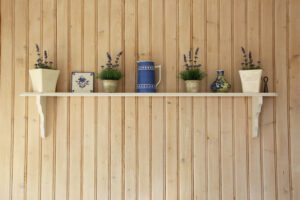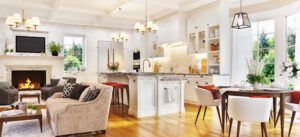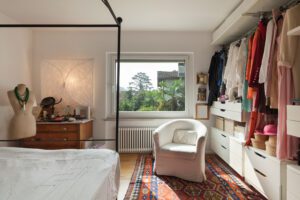Budget-Friendly Materials & Design Elements That Feel Custom
Why does a home look stylish or expensive? Take a closer look. In many cases, it’s not the origin of the floorboards or the price of the counter. It’s how it all comes together.
Custom architectural features and fixtures can cost quite a lot, however. Today, we’re focusing on materials and design elements that help create a custom space on a smaller budget.
What makes a house look cheap?
If looking custom and considered is what makes a property look expensive, then “cheap” is often just a lack of consideration or misguided intention. People may also describe builder-grade homes as cheap. In reality, adding personality and vision contributes as much as a few costlier upgrades.
In any sense of the word, here’s what professional designers find dragging spaces down (hint: it’s not white appliances or laminate surfaces):
- Flat neutral everything. When a one-dimensional pale gray or taupe takes over, it can look like the owner didn’t know what else to do. Selecting a palette of different neutrals in various textures can help.
- Matching furniture sets. If most of what’s in a room can be unloaded in one day, set and forget, it’ll never look custom. Thoughtful pieces that complement one another are a better alternative. Minor alterations to things like hardware or upholstery can keep existing sets from becoming a bore.
- Different flooring in each room. When applied to flooring, disjointed concepts aren’t as custom or unique. A cohesive foundation helps spaciousness and flow, and showcases what owners layer and curate on top of it.
- Cluttered décor. Cramming every collectible atop cabinets and mantels rarely looks quite like the owner intended. Styling open shelving and built-ins with these items is an art that anyone can master.
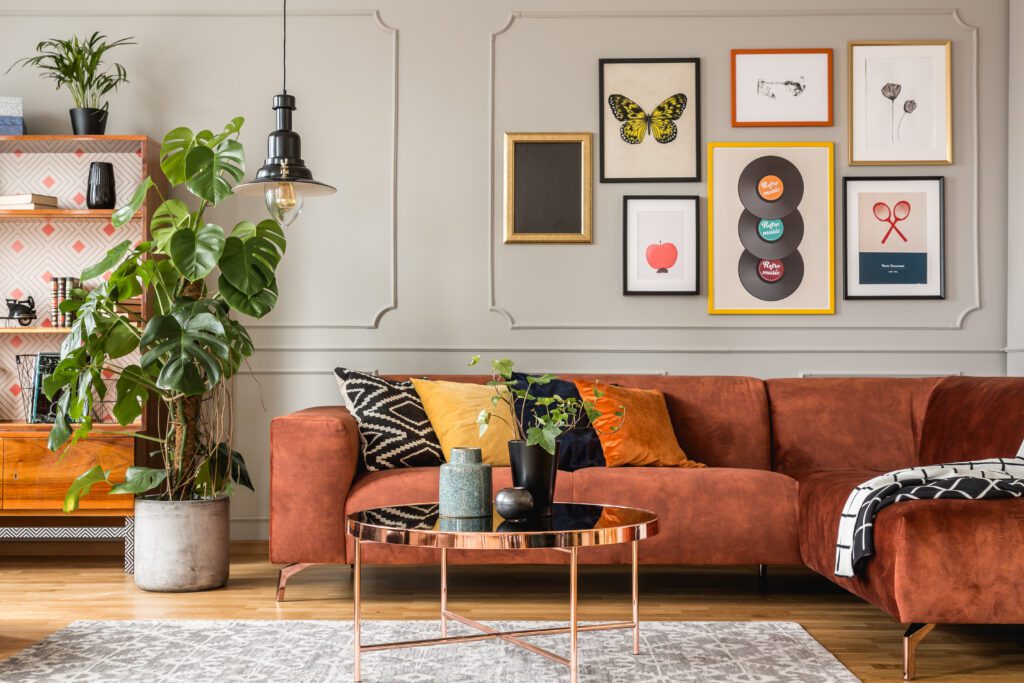
Design tricks and materials that give a custom look for less
Custom countertop edges and cabinet faces are usually worth every penny. But the truth is, you can customize a lot of details for less. Here are the materials and elements that count.
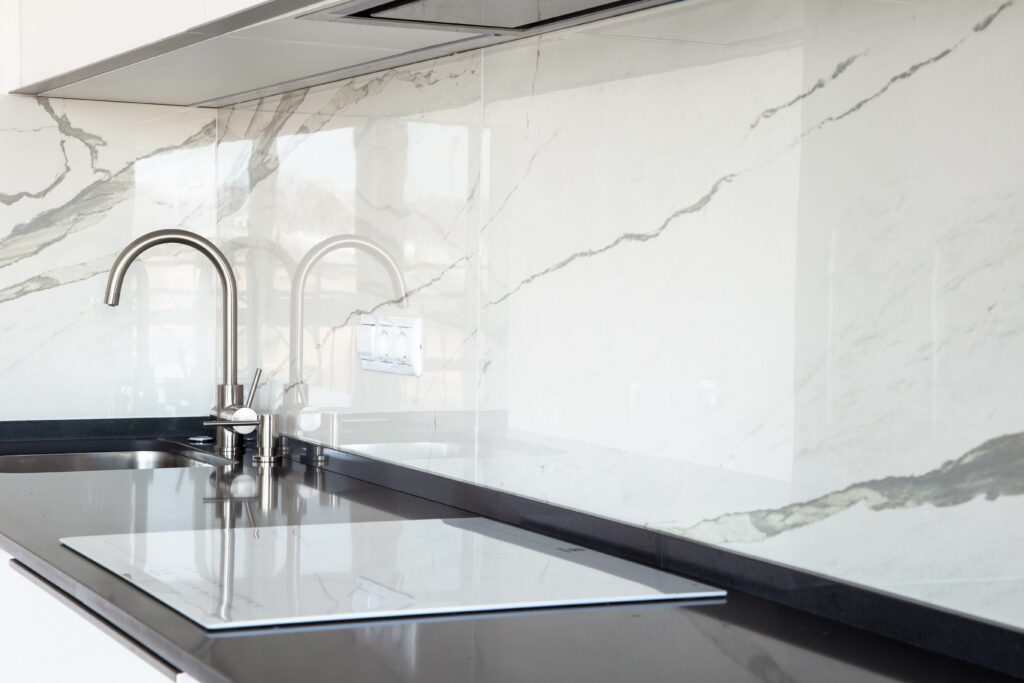
Ceramic (and wood) over stone
When you see the words “tile backsplash,” you likely start thinking of grout, subway tiles, mosaics, et cetera. A lot of homeowners are unaware that the “marble” backsplashes they see in photos often aren’t priceless slabs of one-of-a-kind stone. They are–you guessed it–a large ceramic piece.
If you have a little more to spend on a stone-look backsplash, go for porcelain. From there, convert half of the counter to butcher block. You get the warm, luxe look of a natural material for half the price of quartz.
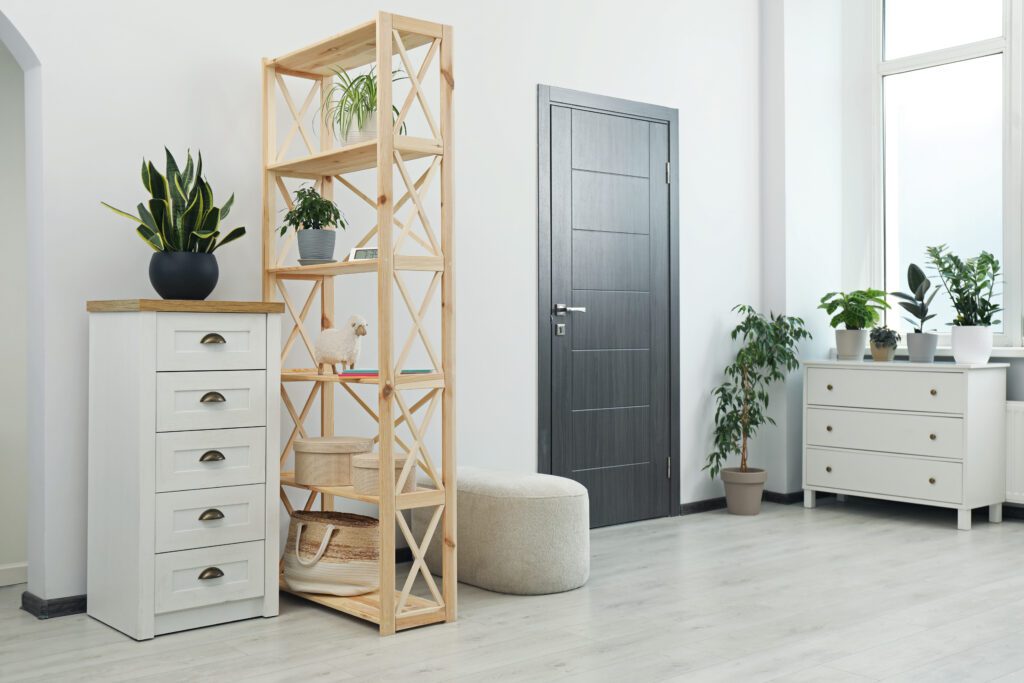
Painting doors
Paint is by far the most budget-friendly material for creating a custom look. While you’re putting your stamp on a house by painting each room, don’t forget the doors. Interior doors are a prime placement for contrasting or statement colors.
It can be both risky and costly to lacquer entire walls or cabinets in cerulean, cabernet, or ebony. Doors require less material and design risk. Who knows–you might even be able to do it yourself.
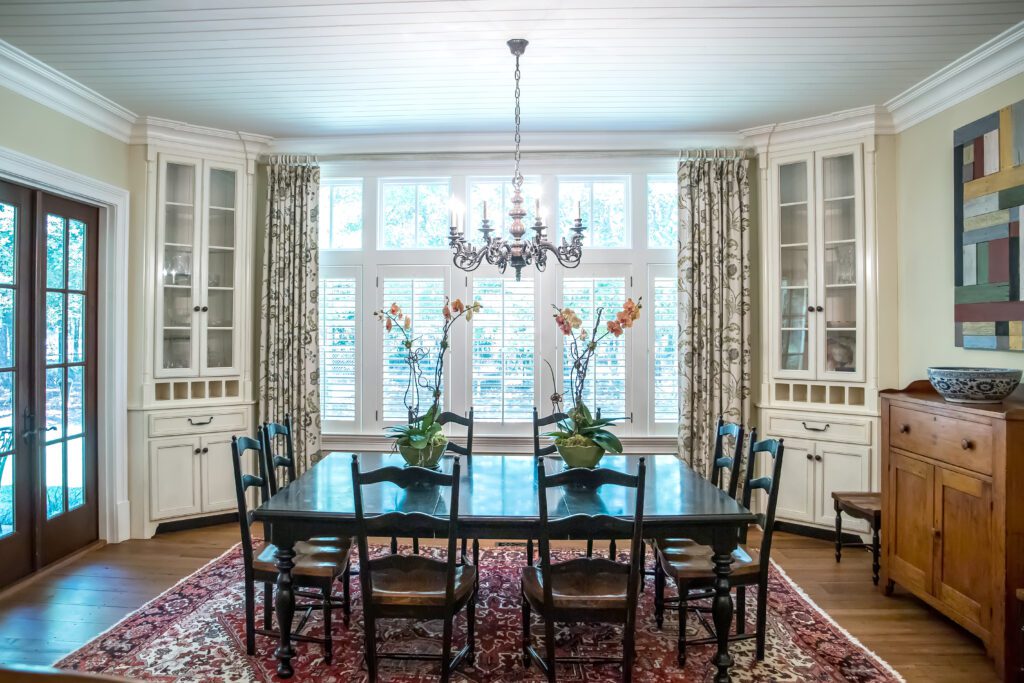
Quality fabrics where it counts
Buying a secondhand rug or area rug from a big box store is fine, provided it’s the right size and in a pattern you love. Hand-dyed rugs aren’t a must for a custom-look home. Window coverings are where you should think about textile quality. And that’s a good thing, since upgrading these is far less expensive than buying an artisan rug.
Blinds and sheers do the job, but add little to the look of a room. Real, lined drapes cancel light when you want, and frame a window nicely when you don’t. Choose linen, cotton, velvet, or brocade over poly blends. This is also a good way to add patterns without the cost and hassle of wallpaper.
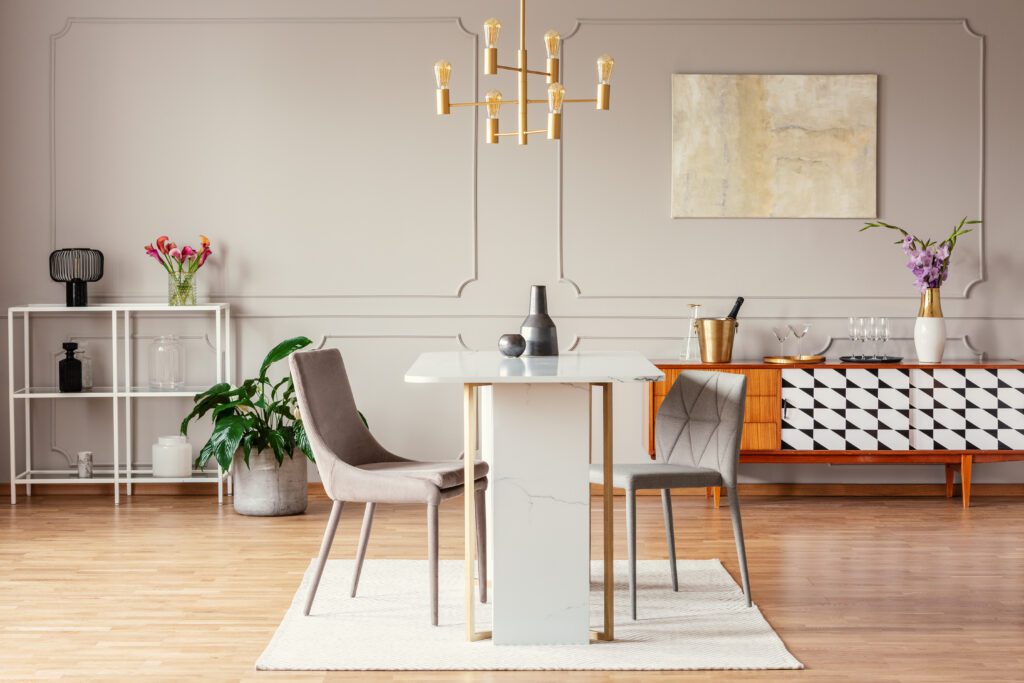
Lighting fixtures
Goodbye, flush mount dome lights. You’ve heard all the advice about layered lighting concepts, and these do alter the environment. What to focus on here is the fixture. If you are not looking to spend on three new light sources, choose at least one ceiling fixture.
And don’t be afraid to make it a larger statement piece. Refurbish a vintage find, even. These are a room’s tastemakers, instantly elevating a visitor’s initial impression.
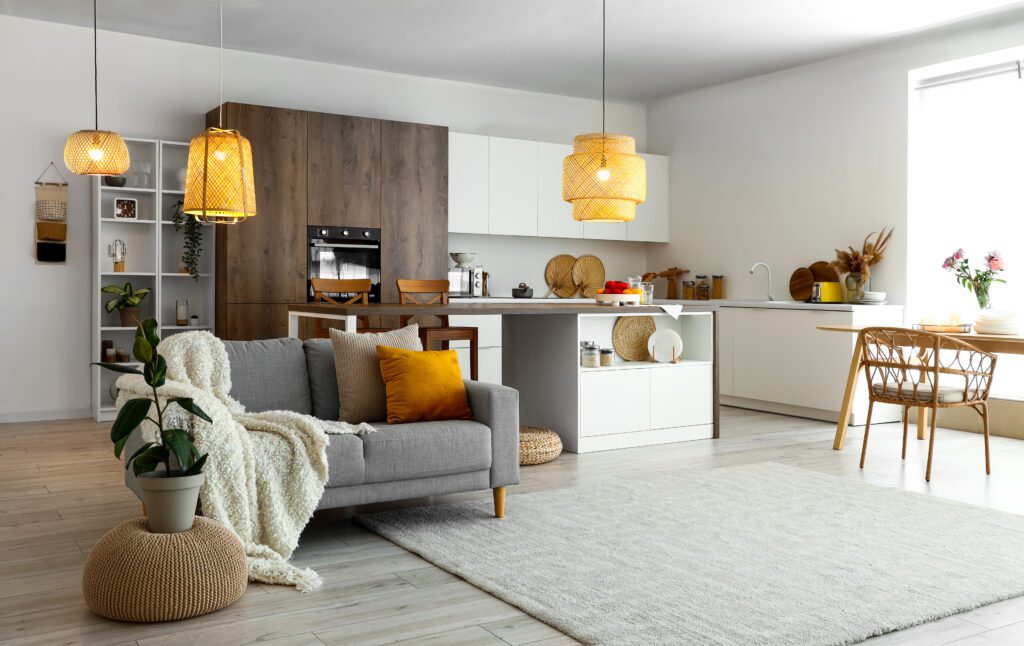
Vinyl flooring
Hardwood is wonderful–it develops a patina over time that couldn’t be more custom. Character-building imperfections on top-quality materials like this can add so much aesthetic value. But when premium flooring isn’t in the budget, old linoleum or vinyl plank has to be updated.
Today’s options include a wider range of finishes that complement custom interiors. Luxury vinyl plank flooring is also durable and budget-friendly enough to install throughout, preventing the mismatched flooring conundrum.
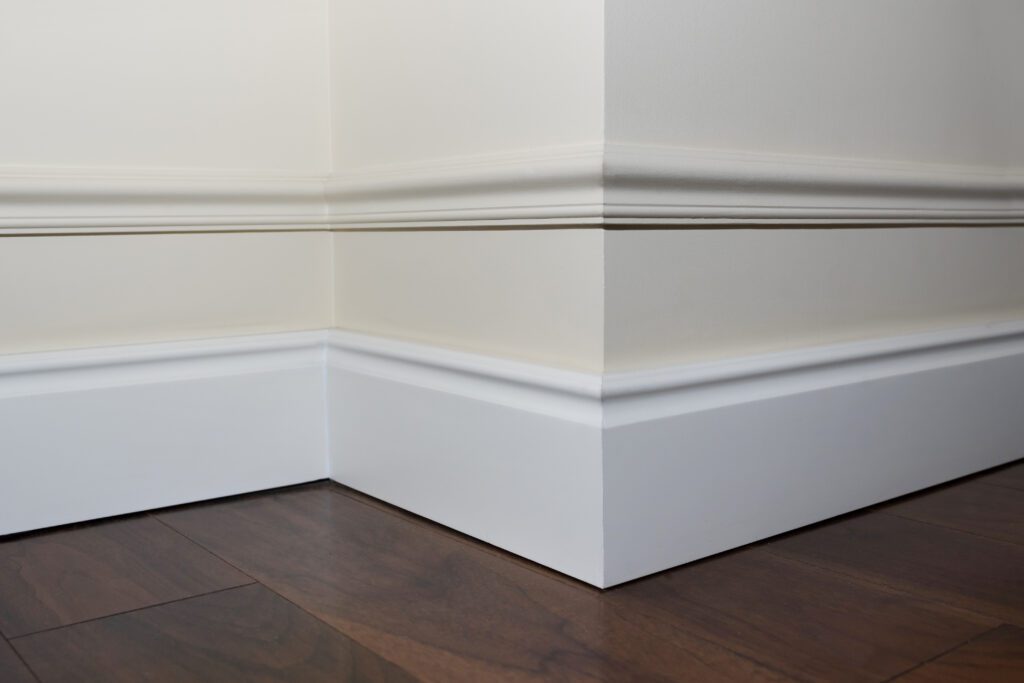
Trim and molding
Experienced DIYers have been successfully mimicking the look of wall molding or wainscoting with pieces of trim for some time. Today, contractors are installing panels that make these expensive-looking details one of the most cost-effective changes on the remodel list.
However, you don’t need to go full-out with molding. Refinish or purchase new trim and baseboards. Replace what’s there, add where it isn’t. This one choice offers quick, budget-friendly architectural detail characteristic of a custom design.
Custom cabinets, hardware, and more from The Designery
Just because you’re not ready for the most luxurious materials out there doesn’t mean you can’t afford to add custom features to your home. The Designery offers a full range of materials for many budgets. From cabinets and countertops to closets and baths, we can add custom details to personalize your space.
Best of all, our professional designers can help inspire and guide you along the way. Book a free meeting with one today.
